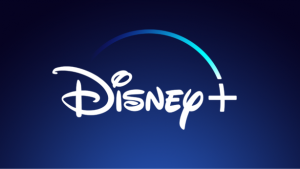
After more than 40 years of operation, DTVE is closing its doors and our website will no longer be updated daily. Thank you for all of your support.
Disney’s SVOD supremacy might not be so simple overseas
 Disney has never shied away from wearing its streaming ambitions on its sleeves, but from the moment the company was rumoured to be interested in acquiring 21st Century Fox’s entertainment division, the industry knew that it was very serious in its intentions to take on the SVODs. Now, with the news that the mousey monolith is to acquire Hulu, is the company perfectly positioned to become the leading player in the space?
Disney has never shied away from wearing its streaming ambitions on its sleeves, but from the moment the company was rumoured to be interested in acquiring 21st Century Fox’s entertainment division, the industry knew that it was very serious in its intentions to take on the SVODs. Now, with the news that the mousey monolith is to acquire Hulu, is the company perfectly positioned to become the leading player in the space?
It would be somewhat oversimplifying the situation to point to one particular acquisition as the definitive ‘winning’ factor for Disney. This is, after all, a company that has, in the space of 100 years, gone from being a studio into being a theme park operator, a cruise line, a broadcaster, a video games publisher, an international retailer, a theatre group, a record label, a real estate investment banking firm… and a film studio.
Neither Fox, nor Hulu, nor ABC, nor ESPN will give Disney the edge as supreme streamer, but these different elements will combine into an all-encompassing network of subsidiary streaming services that exists under its umbrella. And each will have its own audience. Disney+ is aimed at the family audience, Hulu offers a distinctly more adult range of content, while ESPN+ is aimed squarely at sports enthusiasts.
Looking at it this way, it is easy to agree with Ampere Analysis’s assertion that Hulu will “allow Disney to reinvent the TV ‘channel family’ for the streaming generation and give it the content scale and bundling flexibility it needs to take the fight to Netflix and Amazon”. If these three services, (complete with their original programming and thousands of hours of content from Fox and ABC) are to make up Disney’s holy streaming trinity, it will be a compelling proposition to existing cord-cutters and people less familiar with the streaming revolution.
This narrative is, however, mostly told from a domestic US perspective. Disney has played coy on discussing its international plans, outside of the core Disney+ service. While Hulu is a household name in the US, it has licensed its original programming for distribution internationally, making this a less straightforward proposition when considering different markets. It could potentially withdraw the licensing of its original shows and movies from other platforms and broadcasters, but the third-party content on Hulu will likely be wrapped up in contracts with Netflix, Amazon and other platforms around the world.
If that wasn’t already headache-inducing, international sports rights are a minefield that Disney has not yet really had to consider. The UK, for example, is already a crowded and competitive space, with pay broadcasters Sky and BT jostling for prime positioning, and PSBs picking up the remains of what is affordable. Across the rest of Europe, there is more room for a disruptive force in the market, but with deals normally done years in advance Disney will face hurdles if it wants to expand ESPN+ in the short-term.
When it launches internationally, Disney+ will be a compelling alternative to Netflix and Prime Video, but that is not what Disney wants. The company has countless fingers in countless pies, and wants to make sure that whatever content viewers are watching – from kids shows to leading dramas and everything in-between – is coming through them.
With a wide reach across the US market, Disney’s American streaming success seems a no-brainer. However, if the company wants to eclipse Netflix and Amazon at home and abroad, it needs to be tactful in its approach to licensing and rights. Without a considered strategy, Disney will find itself behind before it has already begun. However, with a unique position as the most recognisable and iconic name in all of entertainment, the Disney wish upon a star might just come true.


